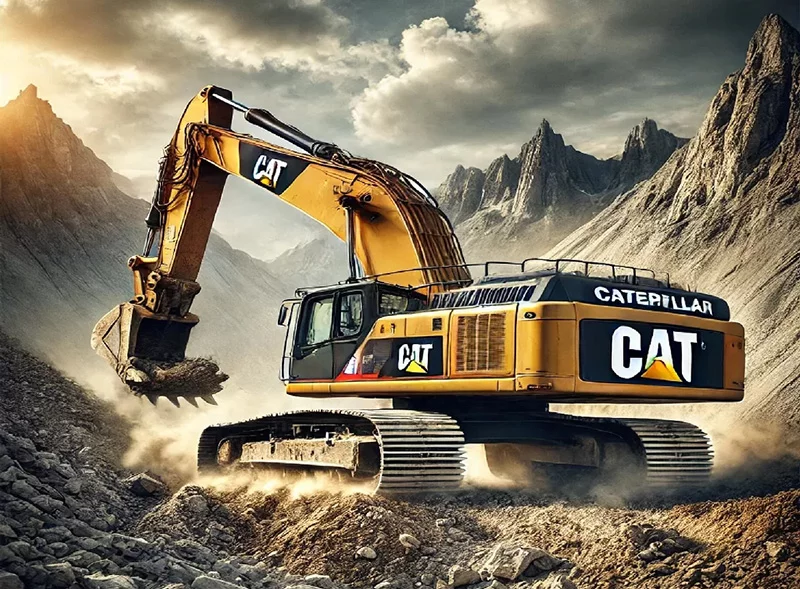The Savvy Contractor's Handbook to Second-hand Excavators
In the realm of the construction and heavy machinery sector, being strategic with investments is key to maximizing both efficiency and profitability. For many contractors, purchasing used excavators can be a great way to obtain needed machinery without overspending. Gaining insight of the second-hand market is necessary to guarantee that you acquire reliable machinery suitable for managing the challenges of challenging projects.
Pre-owned diggers, frequently called used diggers, often provide considerable savings and maintain high levels of performance. Yet, exploring the second-hand equipment space demands thorough research and careful thought. In this article, we aim to discuss the important elements to assess when looking at used excavators, helping you become a savvy buyer capable of identifying great deals and steering clear of expensive errors.
Comprehending Used Excavators
Pre-owned diggers are a essential asset for many construction and landscaping tasks. They offer a economical solution for businesses looking to maximize their machinery expenditure while still achieving the necessary efficiency and dependability. The term “used excavator” refers to equipment that has been previously owned and operated, and is now available for resale. https://www.excavatorhs.com/ can vary greatly in terms of age, condition, and capabilities, making it important for buyers to conduct thorough investigation.
When considering used diggers, potential buyers should evaluate several factors, including the equipment's usage hours, maintenance history, and overall wear and tear. Understanding how the excavator was previously used can provide insights into its future longevity and trustworthiness. Additionally, it is crucial to examine the equipment for any indications of damage or neglect, as this can affect future maintenance and operational efficiency.
Additionally, the market for used excavators has grown due to the growing interest for cost-effective construction solutions. This influx has led to a wider range of options available for buyers, from regional dealerships to internet-based marketplaces. A knowledgeable decision can lead to substantial savings compared to brand-new units, as long as buyers take the time to comprehend the worth and the specific needs of their tasks.
Perks of Acquiring Second-Hand Diggers
Buying a second-hand excavator can provide significant financial benefits. One of the most attractive aspects is the reduced initial cost compared to purchasing latest machinery. Companies can save a considerable amount of capital while still getting functional equipment. This allows companies to allocate their resources to additional essential areas, such as staffing or project materials, ultimately enhancing profitability.
Another advantage of selecting second-hand diggers is the presence of well-maintained options that can perform just as efficiently as latest models. Many used excavators come with a complete service history, illustrating how well they have been looked after over time. Customers can take leverage of equipment that has already been used, often avoiding the first depreciation that new machines face. This ensures that contractors get good value for their investment right from the start.

Moreover, the range in the second-hand market means that companies can find machines that suit their particular project needs without being limited to the most recent designs. With various brands and configurations available, firms can choose excavators that are customized to their projects, whether they demand compact models for narrow spaces or heavy-duty machines for robust tasks. This adaptability can lead to improved project outcomes and increased efficiency on the job site.
Key Elements to Take into Account
When thinking about the purchase of a used excavator, one of the most critical aspects to assess is the machine's overall condition. Look closely at the exterior for signs of wear and tear, such as corrosion or damage to the body and parts. Additionally, inspect the hydraulic system for drips and test various functionalities to ensure that everything operates smoothly. A thorough examination can save you from expensive repairs down the line.
Another important consideration is the maintenance history of the excavator. Inquire about the service records and any previous repairs that have been made. Machines that have been properly cared for are more likely to perform reliably, so focus on those with a well-documented maintenance log. Understanding how the equipment has been cared for can provide insights into its remaining lifespan and potential performance issues.
Lastly, think about the availability of parts and service for the specific model you are looking at. Some older or less popular models may have restricted availability, which can make repairs and upkeep more difficult and costly. Research the brand and model to assess the reputation for availability of parts and whether there are qualified technicians in your area. This knowledge can help you avoid unexpected problems after your purchase.
Tips for a Successful Purchase
When evaluating a pre-owned excavator, it is important to conduct comprehensive research before making a decision. Start by locating respected dealers or individual sellers with favorable reviews and a solid track record. Look for any available certifications or warranties that may give you additional assurance. Comparing various models and prices will also help you assess the market value and ensure you are making a fair investment.
Examining the excavator in person is an integral step in the purchasing process. Check for signs of damage, as well as any leaks or mechanical problems. It is wise to review the maintenance history and service records to understand how well the machine has been cared for over its useful life. If practical, arrange for a professional mechanic to inspect the machine and provide expert opinions on its condition.
In conclusion, consider your funding options and planning for future maintenance costs. Used machinery may come at a more affordable upfront price, but it's important to factor in possible repairs and servicing down the line. This will help you avoid surprise financial burdens and ensure that your investment in a second-hand digger remains profitable and effective for your construction needs.